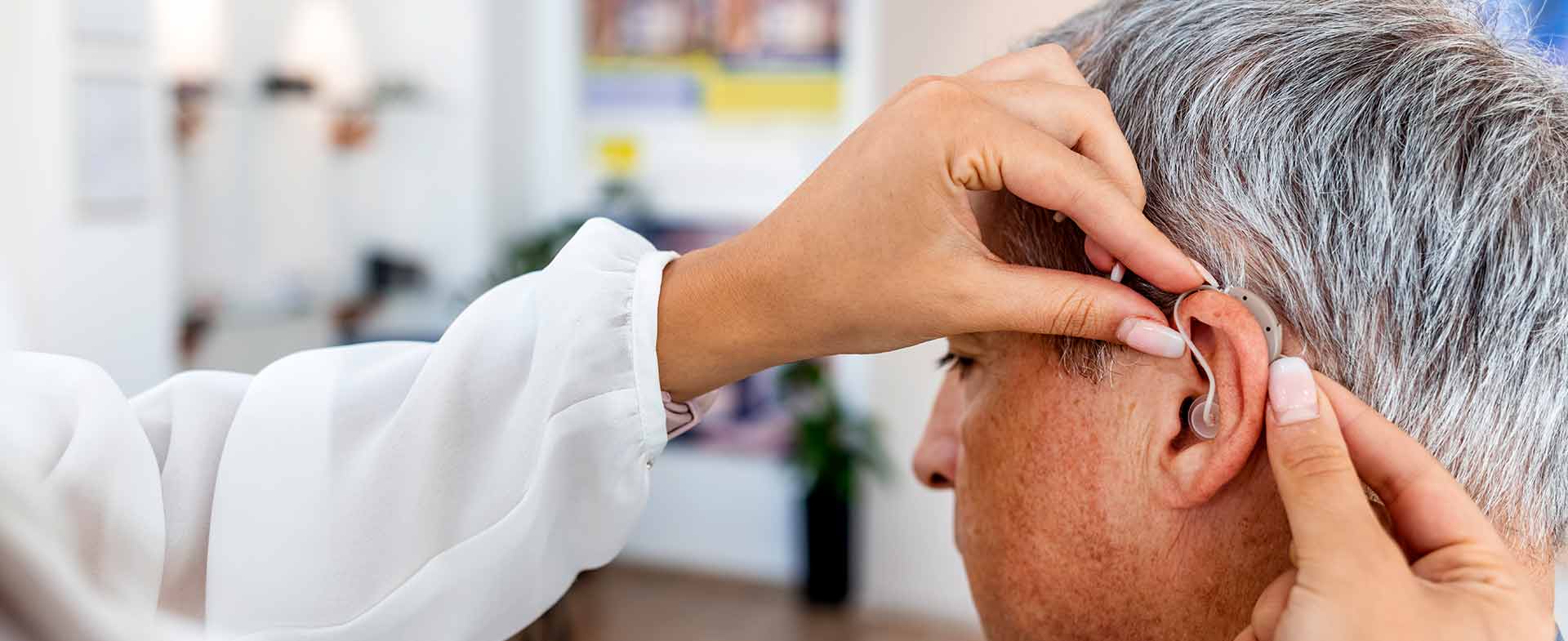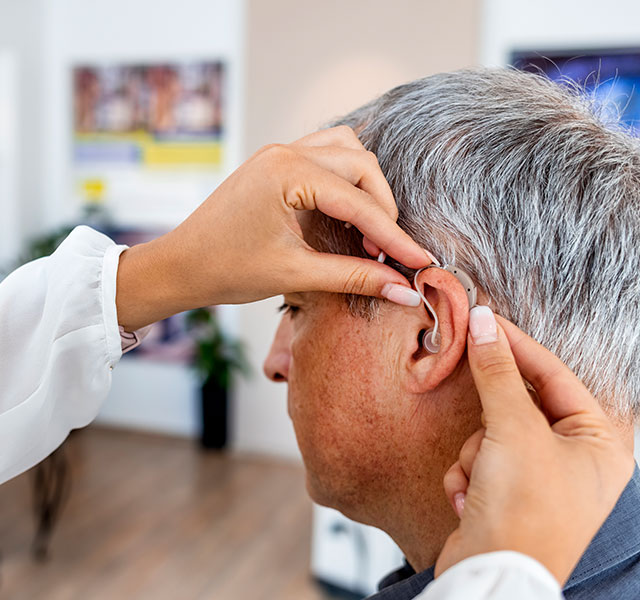Mild to moderate hearing loss is common—and it gets more common with age. In adults 65 to 74, about 1 in 3 has some difficulty hearing. By age 75 (and above), as many as half of adults have lost enough hearing that it’s difficult to follow conversations with friends and family.
Despite the high numbers of people coping with hearing loss, most are not using hearing aids to help them hear better. “We only reach about 30% of the people who have hearing loss,” says Brad Stach, Ph.D., an audiologist at Henry Ford Health. “And typically, those with mild to moderate hearing loss wait till it gets worse before even considering a hearing aid. And, regardless of cost, most never obtain hearing aids.”
What’s Holding People Back From Hearing Aids?
The push to make hearing aids available over-the-counter comes in part from the concern that out-of-pocket costs are keeping people from getting the hearing help they need. “For the most part, however, cost isn’t what holds people back,” says Dr. Stach. “Even in countries where hearing aids are free, the majority of people with hearing loss still don’t choose to get them.”
Plus, just because you can now purchase a nonprescription hearing aid doesn’t mean it’s going to be cheap. Over-the-counter hearing aids can run anywhere from a few hundred up to a few thousand dollars. “The real issue is that most people with mild to moderate hearing loss simply don’t want to wear a hearing aid and don’t think they need one,” says Dr. Stach.
The Problem With OTC Hearing Aids For Mild To Moderate Hearing Loss
The Federal government hopes to help more adults with mild to moderate hearing loss by opening access to hearing aids without a visit to a doctor for a prescription device. The devices newly available without a prescription are designed to aid adults with perceived mild to moderate hearing loss. They are not recommended for those who have “red flag” conditions (such as vertigo, hearing that’s changed suddenly or ringing in one ear) that may indicate other medical issues.
But hearing loss professionals worry that without proper diagnosis and guidance, people will get frustrated and not get the help they need from an OTC hearing aid. Selecting and using a hearing aid isn’t as simple as picking up a pair of nonprescription reading glasses. “Prescription devices are customized for a reason,” says Dr. Stach. “Ear canals come in all shapes and sizes, and a one-size-fits-all approach typically doesn’t work.”
If you decide to try an over-the-counter hearing aid, experts recommend making sure whatever you buy has a generous trial period and can be returned for your money back if it doesn’t work out. “Hearing aids can require time to get used to and several adjustments before you can expect to see the best results,” says Dr. Stach.
How A Hearing Loss Professional Can Help
If you have concerns about your hearing—and how much of it you may have lost—there are plenty of good reasons to check in with a doctor, audiologist or other hearing loss specialist.
It can be tricky to accurately assess your own level of hearing loss. “Those of us who examine and treat patients with hearing loss are well aware that many of them underestimate the extent of their problem,” says Dr. Stach. “The OTC hearing aids are meant only to treat mild to moderate hearing loss.” If your hearing loss is actually more severe, an over-the-counter hearing aid won’t provide the results you need.
The other concern with self-diagnosing (and treating) a hearing issue is that any underlying medical issues will go unrecognized. “When a patient comes in for hearing loss, we look for related health issues that may also need to be addressed,” says Dr. Stach.
Finally, there’s the need for proper hearing aid fitting and adjustments over time. During a fitting with an audiologist, you will likely spend up to three hours working together. They’ll adjust the fit to get the device just right and teach you exactly how to use it and what to expect as you get used to wearing it.
Your audiologist will continue to work with you until you are completely satisfied with how your hearing works and feels. “Our average patient comes back three times for adjustments,” says Dr. Stach. “People may think that prescription hearing aids are too expensive compared to over-the-counter devices, but that cost covers all of the services that go with it to ensure it works for you.”
To find a physician or audiologist at Henry Ford, visit henryford.com or call 1-800-436-7936.
Dr. Brad Stach is an audiologist who sees patients at Henry Ford Hospital and Henry Ford Medical Center - Fairlane.



